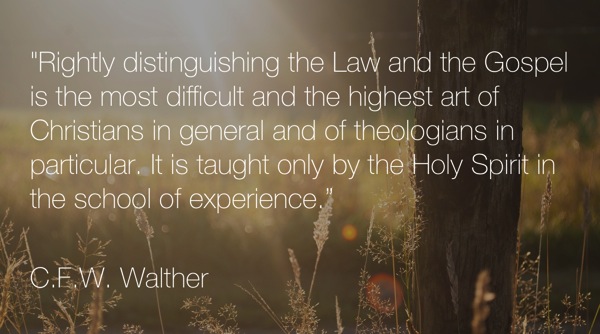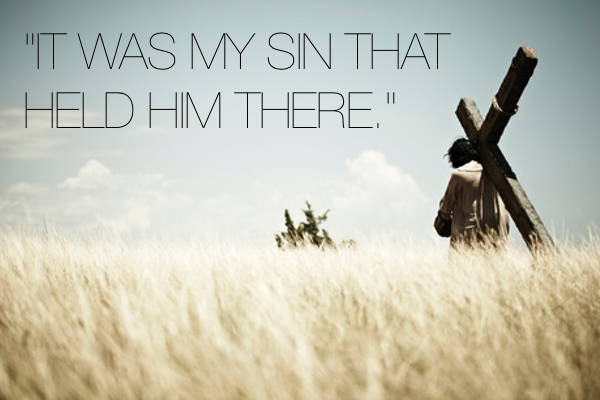This past weekend I had the incredible privilege of baptizing my daughter. Because of the baptism, the subject has been fresh in my mind. In fact, one of the cool moments last week I got to experience was taking my son down to the worship center to watch a video of his baptism and let him touch the water in the baptismal font.
But what’s so special about this thing called baptism?
Why baptize my daughter?
Why baptize anyone?
What do Lutherans really believe about baptism?
[tentblogger-youtube 7TJP0Y-p1rU]
God’s work, not ours.
An important thing to understand about baptism is whose work this is. If you see baptism as your work, this is going to be a difficult area for you. When you see baptism as your own work or your own commitment of faith, it is about what you do for God. When this happens you automatically are going to see baptism as requiring a certain age, a certain profession of faith, or some kind of decision.
But when you see baptism as God’s work, this becomes all about what God promises to do for us.
It’s about receiving God’s gifts.
Our whole Christian faith is about receiving gifts from God and has nothing to do with the work that we do for God. Baptism reflects this faith. It’s not about what we do for God; it’s about what he does for us.
Where did your faith come from?
When did you become a Christian? Maybe you can remember a specific moment or a conversation. When was faith created in your life?
How, then, can they call on the one they have not believed in? And how can they believe in the one of whom they have not heard? And how can they hear without someone preaching to them? - Romans 10:14
If you became a Christian in your teens at a conference, let’s consider what happened in those moments. Somebody spoke from a platform about the message of the Gospel. Or maybe you had a conversation with a friend or pastor. When that words of the Gospel were spoken, God did something in your heart and from that time on you were a follower of Jesus.
Whose work was that?
It was God’s of course. God created faith in you. God gave you his gifts. You may have responded to him, but you get no credit in what you received.
God worked through the sound waves of a preacher to create faith in you. Or perhaps he worked through ink and paper as you read the words in your Bible. Or he worked through your friend. However it looked for you, God worked through his Word to create faith. This is how God works.
Baptism works this same way.
The Reformers often referred to baptism is visible Word.
"It has been well said by Augustine that a Sacrament is a visible Word, because the rite is received by the eyes and is, as it were, a picture of the Word, illustrating the same thing as the Word. The result of both is the same." - Apology of the Augsburg Confession article XIII
It’s not magic water; it’s God’s Word at work in the waters of baptism.
And just like when you hear the Word or read the Word, God is at work in it. Forgiveness is given. Not because you did anything, but because God worked in the ways He said he would.
And so we believe baptism works like all of our faith works.
“Repent and be baptized, every one of you, in the name of Jesus Christ for the forgiveness of your sins. And you will receive the gift of the Holy Spirit.” - Acts 2:38
Baptism is for the forgiveness of sins?
If this is man’s work, that statement would be heresy. But if baptism is indeed God’s work, baptism is for the forgiveness of sins. How? Because baptism is for the forgiveness of sins, just like a sermon is for the forgiveness of sins, reading the Bible is for the forgiveness of sins, or God's Word spoken through a family member is for the forgiveness of sins.
We always receive the gift of grace through faith. And faith is given by the Holy Spirit through his Word.
Titus 3:5 says, "He saved us through the washing of rebirth and renewal by the Holy Spirit.”
How does baptism save? The same way that we are saved in the hearing or reading of Scriptures. The Holy Spirit gives us faith in the work of Christ.
And that faith is not dependent on age or intellectual capabilities. This is why as Lutherans we also baptize all ages. We baptize adults. We baptize teenagers. We baptize babies. When the Scriptures speak of making disciples of “all nations,” we believe this includes everyone, regardless of their stage of life. And because all people are sinful, all need to be baptized.
In baptism, we receive all the gifts that only Jesus can give.
So what do I believe happened in my daughter’s baptism?
I believe that Emmy is a child of God not because of her work, but because of God’s work. I believe that God has been at work through his Word as I read her the scriptures from the time she was born. And I believe that he was at work through his Word at her baptism. And I believe that God will continue to work and grow her faith through his Word as I teach her the Scriptures as she grows older.
Because this is what was promised, God’s Word will always do its work.
This really just scratches the surface of baptism and we could talk about a lot more. What questions do you have about this subject?
 Moses and God just got done having a talk at a bush that was on fire and wouldn’t burn up. Moses decides to start asking questions about his new mission. Although he is about to be used to lead the people out of Egypt, he seems a bit reluctant about the whole thing. Moses asks the question, “What if they do not believe me or listen to me?”
Moses and God just got done having a talk at a bush that was on fire and wouldn’t burn up. Moses decides to start asking questions about his new mission. Although he is about to be used to lead the people out of Egypt, he seems a bit reluctant about the whole thing. Moses asks the question, “What if they do not believe me or listen to me?”

 What would it look like if Dads were the pastors of their home? What would our families look like if Dads saw their vocation as father as crucial to the life of their kids and spouse? What if dads saw themselves as the primary shepherd in their home? It is often easy to see the job of pastoring and shepherding as the job of the professionals, but for the dad the pastoring in their home is primarily their responsibility.
What would it look like if Dads were the pastors of their home? What would our families look like if Dads saw their vocation as father as crucial to the life of their kids and spouse? What if dads saw themselves as the primary shepherd in their home? It is often easy to see the job of pastoring and shepherding as the job of the professionals, but for the dad the pastoring in their home is primarily their responsibility. If you are a
If you are a  People leave churches for all kinds of reasons. Some of the reasons are good and other times…not so good. Sometimes the reasoning stems from a disagreement in doctrine, other times it stems from a ministry philosophy, and others it simply comes from a preference of style.
People leave churches for all kinds of reasons. Some of the reasons are good and other times…not so good. Sometimes the reasoning stems from a disagreement in doctrine, other times it stems from a ministry philosophy, and others it simply comes from a preference of style. Mother’s Day is right around the corner. And moms everywhere likely look forward to having one day where people cater their wants and needs. While we should certainly make everyday an opportunity to honor moms, I thought it would be an especially appropriate time to consider the important
Mother’s Day is right around the corner. And moms everywhere likely look forward to having one day where people cater their wants and needs. While we should certainly make everyday an opportunity to honor moms, I thought it would be an especially appropriate time to consider the important  Have you ever experienced a film that is so good that you hated when it was over? You know the kind of movie I am talking about - the movies that have you so engaged and when all of the sudden the music starts to crescendo and the credits start rolling, you immediately have a panic attack and shout, “NO!”
Have you ever experienced a film that is so good that you hated when it was over? You know the kind of movie I am talking about - the movies that have you so engaged and when all of the sudden the music starts to crescendo and the credits start rolling, you immediately have a panic attack and shout, “NO!”


 How would you describe the
How would you describe the  Feelings win in our culture. We do things because of the way it makes us feel. We buy things because of how it makes us feel, and we even believe things simply because of how it makes us feel. We live in a world that wants
Feelings win in our culture. We do things because of the way it makes us feel. We buy things because of how it makes us feel, and we even believe things simply because of how it makes us feel. We live in a world that wants 


